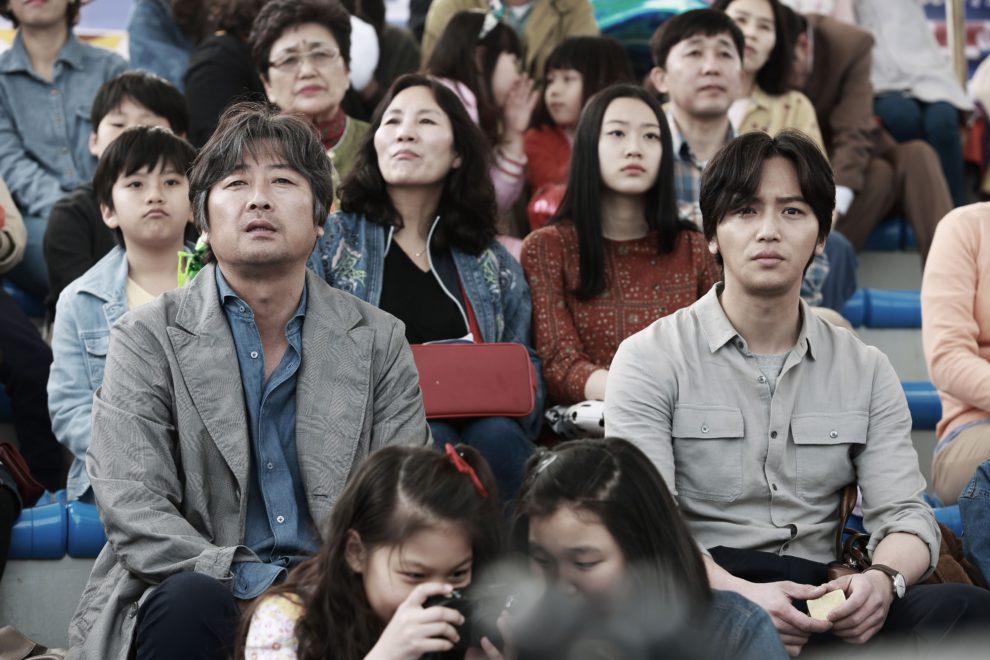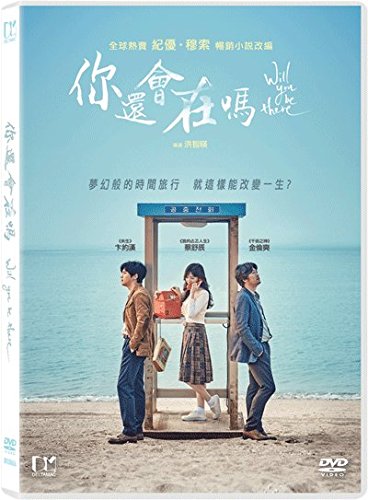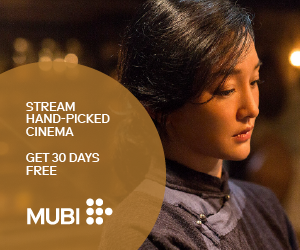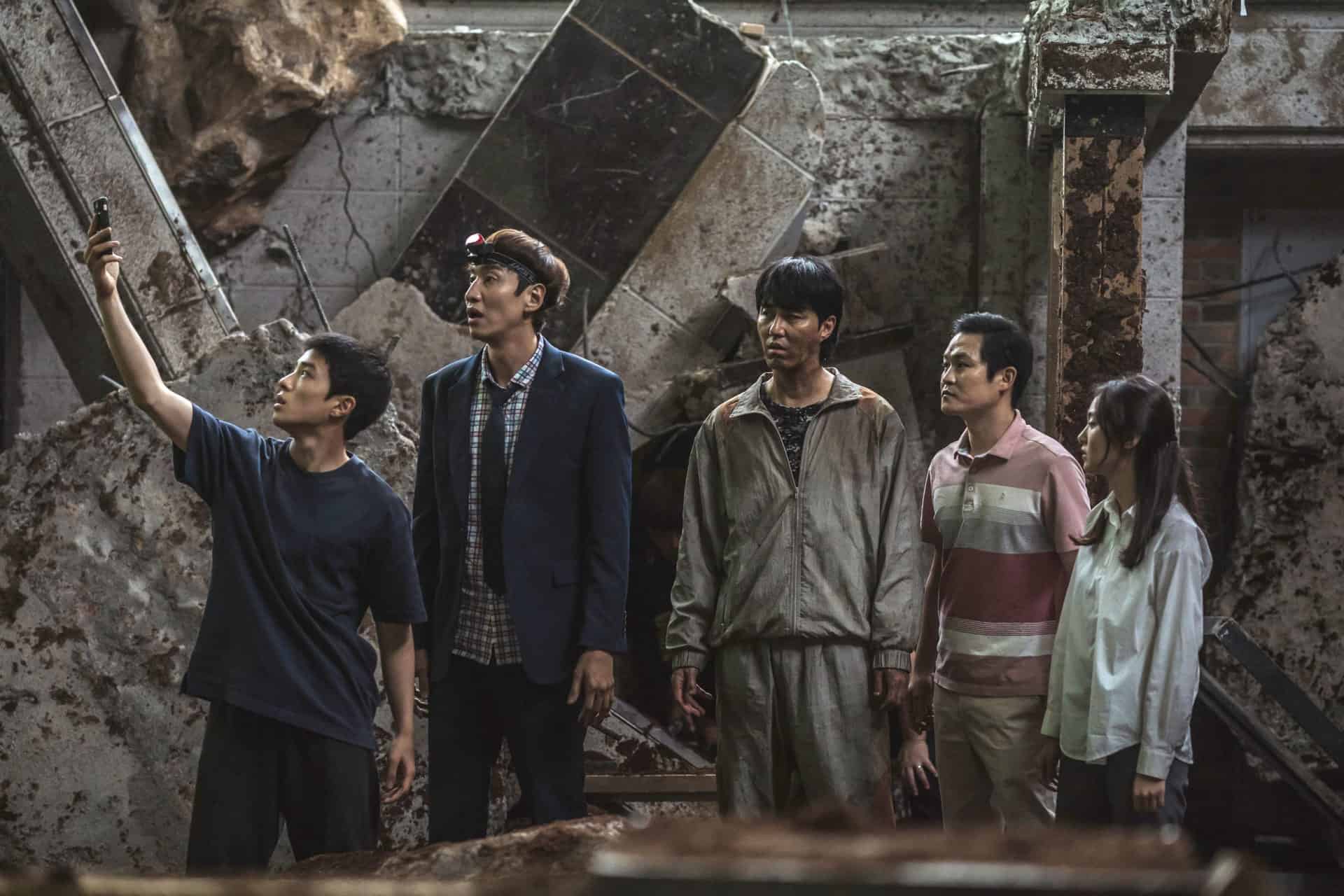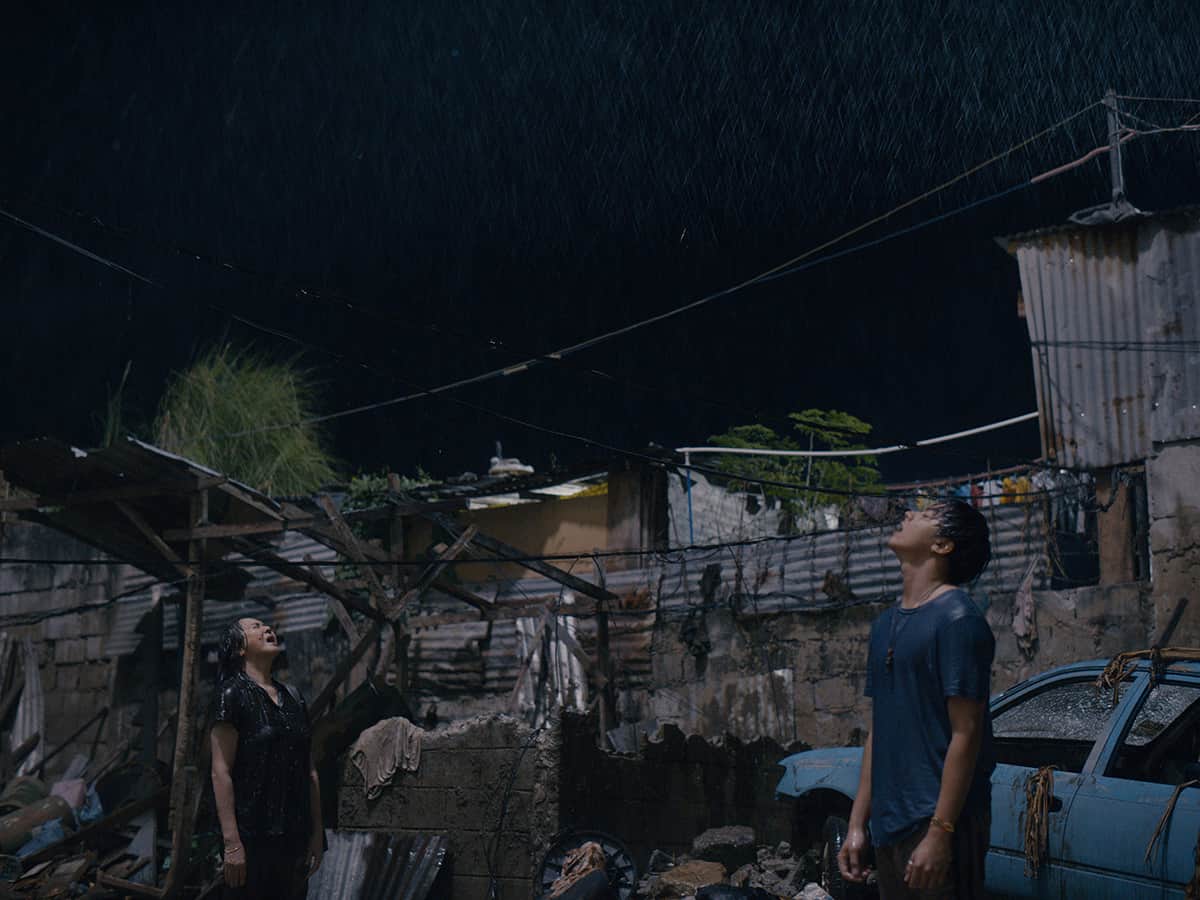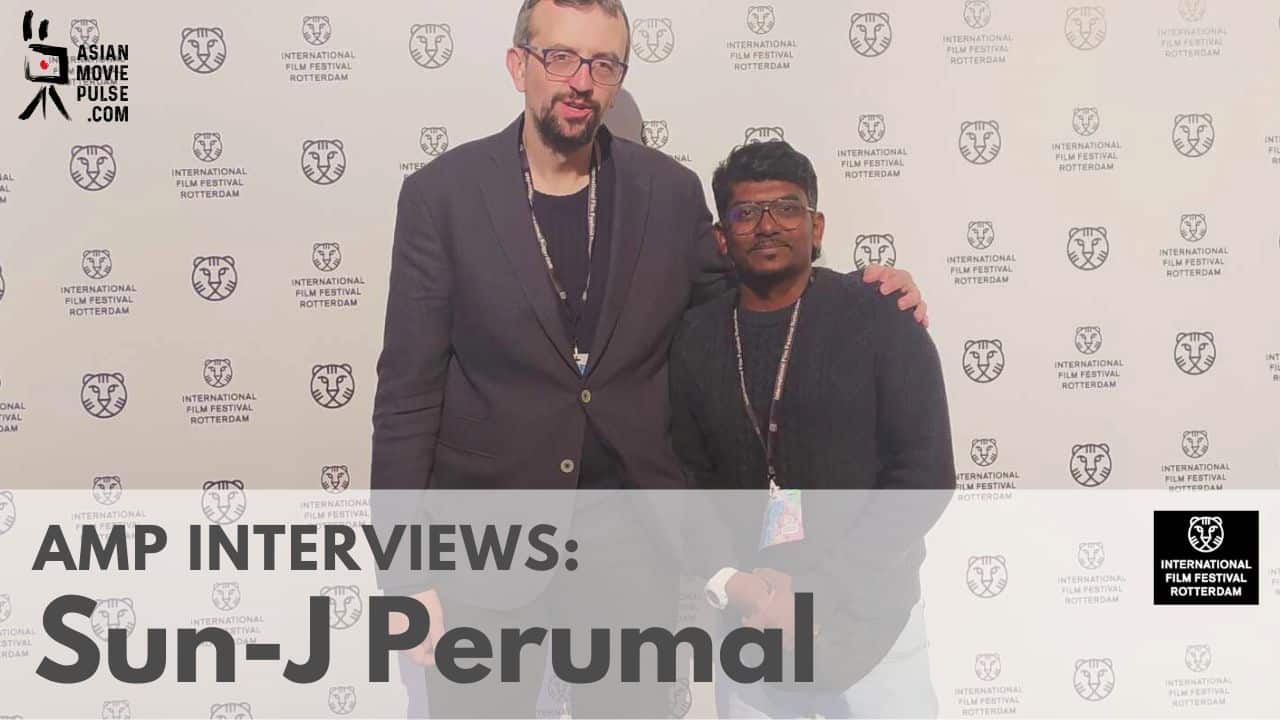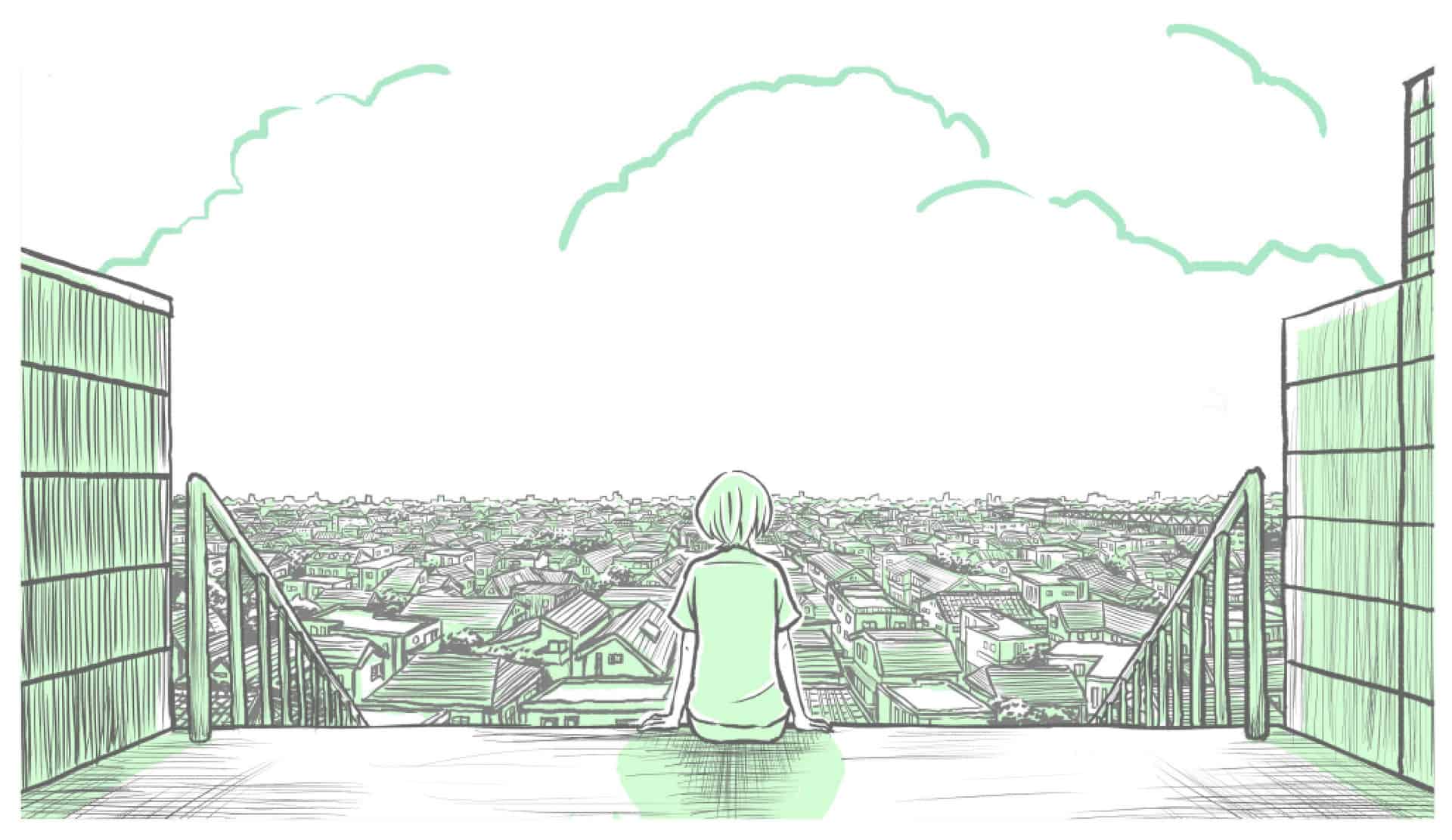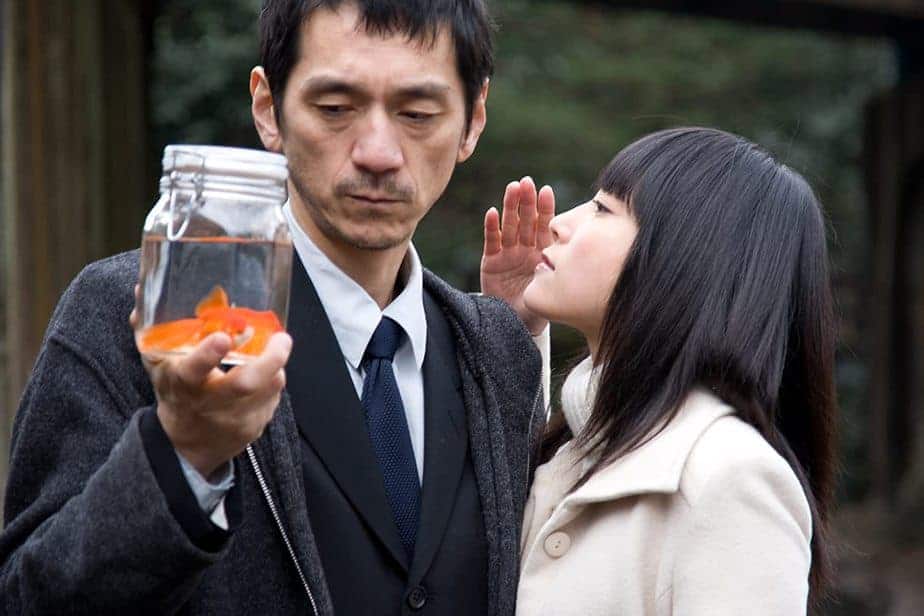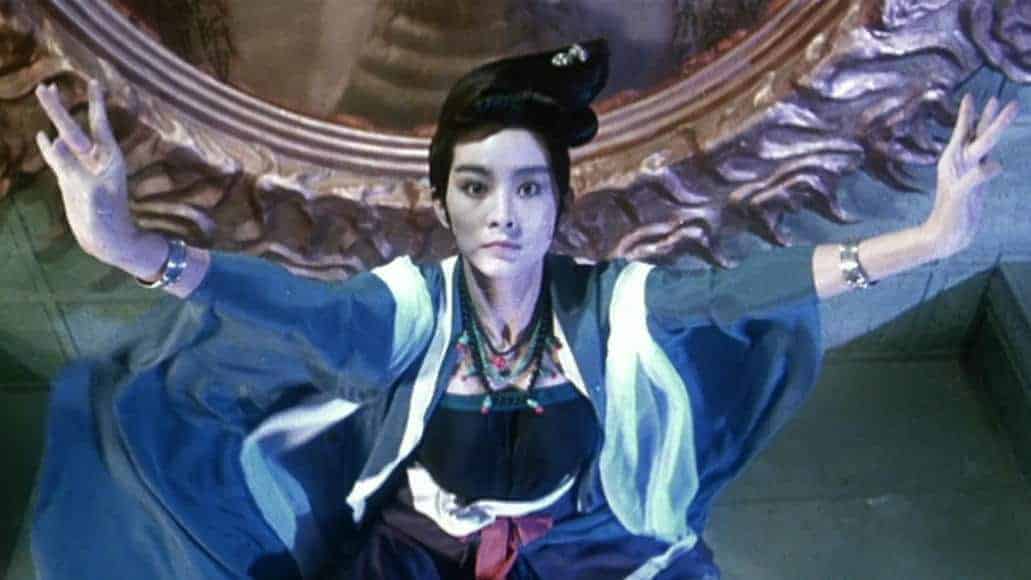In her follow-up to the largely comedic “Marriage Blue”, director Hong Ji-young traded quick-wittedness for grounded emotional depth. Gone are the vapid plotlines about erectile dysfunction, and in its place comes a captivating tale of fixing ones wrongdoings. Based on a French novel by Guillaume Musso, its time-travelling plot may land on the predictable side, but nevertheless “Will You Be There?” is a resolute entry into a genre which can often offer duds.
Buy This Title
At its core, the story revolves around Han Soo-hyun (Kim Yoon-seok/Byun Yo-han). In the present, Han is a stone-faced physician, one with a daughter who he adores, and a close friend in Kang Tae-ho (Kim Sang-ho/Ahn Se-ha), but little else to show for his life aside from some humanitarian work in Cambodia. In the past, though, Han is full of life, and of vigour. Riding a constant high from planning a successful future with the love of his life Choi Yeon-ah (Chae Seo-jin), the spunky upstart seems to have his own fate controlled. Yet, he does not.
After the older, chronically ill version of the protagonist receives ten magic pills from his work in Cambodia, he finds himself face-to-face with his old self, travelling back thirty years, to 1985, right before the death of his partner. Here, upon every encounter with his less tethered, fresh-faced other, he explains how the sorrowful future will play out, and implores his younger counterpart to avoid changing anything. However, such a bold suggestion is far more easily said than done, and the story soon chronicles both incarnations of Han attempting to change the past without meddling with the present. The question is, is that truly possible?
In essence, the concept of altering the past for an ultimately better future is not something unique at all, yet Hong moulds a feature which is almost entirely gripping, and seldom dull. It may occasionally hit the reefs of self-indulgent melodrama, such as when the young paediatrics resident is faced with his abusive father and his untimely death, but it never quite drains on the audience. Instead, there is plenty of room left for reflection, whether on the characters and their choices, or perhaps even our own choices in life, and there is an apt showing that even in a mundane, downtrodden life full of regret, there are still things, or indeed people, one should cling to.
On the other hand, though, the science-fiction element, and reliance on the pill concept to propel the storyline, is occasionally frustrating. By narrowing down the plot to bitesize chunks of Han's past, with often intangible results in the future until a sudden, overblown shift which sees him lose his daughter and closest friend, the audience is starved of an increasingly concrete backstory, and a wider understanding of the film's contextual elements. Of course, it is evident in the flashbacks and trips down memory lane that the younger version of our protagonist is completely enamoured with his partner, but at the same time key moments are skipped, such as how the couple separate after Choi's recovery when the timelines are altered, and indeed how the two even came to be in the first place. Such things are not necessarily vital to the story, but could have provided a greater, supplementary nuanced emotional depth to the movie, in turn adding to its impact.
With that being said, “Will You Be There?” is still a largely striking piece of cinema. Its fast-paced, pull-no-punches approach ensures that there are no needless loose threads, nor meaningless narratives, and instead the viewer can entirely focus on the frantic rush to see one man's fortunes change entirely. The chemistry between the cast is seamless, and makes for a number of captivating scenes, and the easy-to-follow set-pieces allow for a complete lack of confusion as the timelines continue to move forward. It is evidently a mainstream, box-office attempt from Hong, but there is still poignance to be found, namely in the introspective reflections on love, loss and life which allow the film to avoid manifesting as hollow.
Such strength in the adaptation of Musso's novel does come from the actors, who nimbly portray their characters with grounded profundity. Kim Yoon-seok is excellent as the 60-year-old, wise Han Soo-hyun who has come to terms with his regrets, and lived to accept his life for the little it has to offer him. Kim feels sturdy in his role, and never opts for any fanfare, instead letting subtleties (a thoughtless hunch, a mumbling voice, and a laissez-faire approach to his own impending death) speak for themselves. Meanwhile, Byun Yo-han is charismatically charming as the younger version of the movie's lead. A polar opposite to his castmate, Byun adds life to the screenplay with his tangible rashness, and a gripping performance as a desperate man who is torn between following the lead of, well, himself, or impulsively caving to selfish desires. Thus, when coupled with their stellar chemistry, the two polar opposites excel in showing the very real, dramatic two-sides of how life can turn out if fortunes go against us.
Technically, there is not much to say about the film, although it does have a rather welcoming backdrop as a contrast to a lot of the motion picture's grittier, vehement story. Park Hong-yeol does a fine job as cinematographer, ensuring that nothing gets in the way and that proceedings run smoothly, whilst also occasionally offering some dramatic flair. In a scene in which Byun Yo-han's character is caught in the rain, book in hand, there is a palpable pulling of the heart-strings, with the close-ups of his distraught face, coupled with the invasive, rampant rainfall bouncing off his untidy black hair, emphasising the perceived hopelessness of the situation for the young physician. So, whilst such scenes are fleeting, they are timed in ways that amplify the emotional potency, and send a strong message to the viewer.
In conclusion, “Will You Be There?” is a strong entry into the fantasy genre. Documenting love and regret in an engaging way, Hong succeeds in creating something entirely marketable to a mainstream audience, but still palatable for those searching for some substance between the lines.


